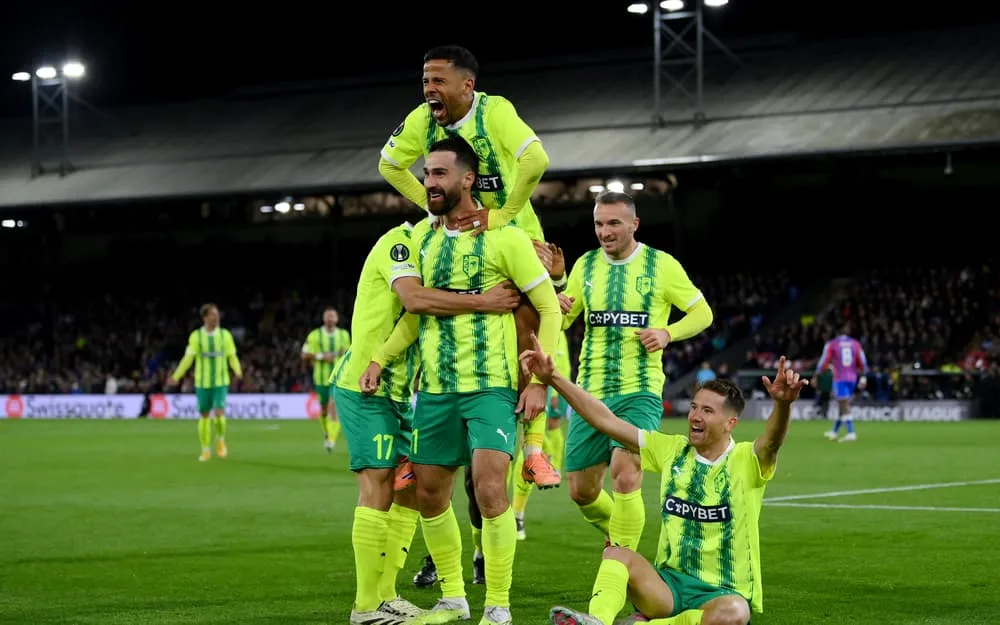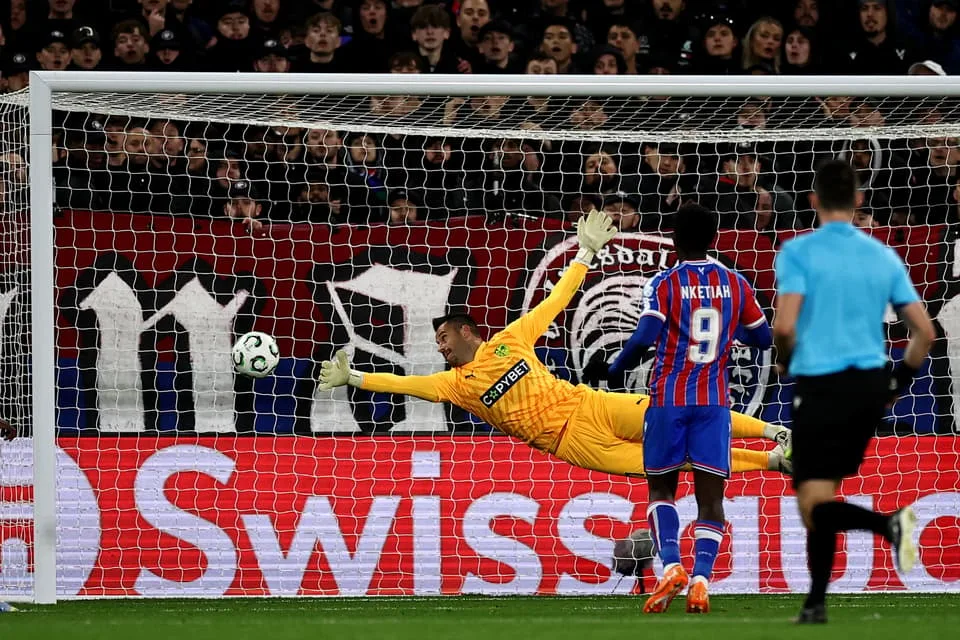In a sobering evening at Selhurst Park, Crystal Palace’s much-anticipated European home debut ended in disappointment as AEK Larnaca stole a 1-0 victory on the night. Despite dominating large segments of the match, Palace paid the price for a single defensive lapse and a persistent inability to turn possession into clear chances.
The result sent a clear message: in European competition, expectations must be matched by ruthlessness — something the hosts failed to deliver.
From the outset, the Eagles controlled the ball and territory. Palace pressed early and often, and by the midway point of the first half, the belief among the home supporters was that the breakthrough would come — especially given the opposition’s low block and reliance on counter-transitions.
Yet, as the match progressed, the tension grew. AEK Larnaca defended resolutely, absorbed pressure, and subtly disrupted Palace’s rhythm. The visitors waited for their moment, and when it arrived, it was decisive.
The goal came six minutes after the interval. A mis-placed pass by 19-year-old Jaydee Canvot, making just his second senior start, surrendered possession in midfield.
Marcus Rohdén capitalised on the error, feeding Riad Bajić, whose low, powerful strike from inside the box arrowed past Dean Henderson and into the net. Suddenly, what had looked like a formality for Palace became a challenge.
From that point, Palace scrambled to respond. Substitutions brought on the likes of Eddie Nketiah, Adam Wharton, and Daichi Kamada, but the expected surge never fully materialised. The home side mustered few attempts on target — none until deep into the second half — while AEK remained compact, disciplined, and confident in their execution.

Manager Oliver Glasner was candid in his post-match remarks. “The easy answer is that we didn’t score from the chances we had,” he stated. “We made one mistake and they punished us.” He emphasised that this defeat serves as a humbling lesson for a club that is still relatively inexperienced in European competition.
For Palace, the match represented an important reality check. The Eagles entered the evening enjoying strong Premier League form, buoyed by recent victories and growing momentum, but the step into continental action exposed vulnerabilities.
One defensive error, minimal chances, and a lack of clinical edge were all it needed for the visitors to leave London with all three points. AEK Larnaca, on the other hand, deserve tremendous credit: well-organised, mentally composed, and effective in seizing the opportunity they were given.
The first half offered glimpses of Palace’s promising attacking potential. Jean-Philippe Mateta hit the crossbar with a clever volley shortly before the break, spurning what was arguably the best chance of the opening period.
Yet the fact that the home side failed to register a single shot on target until around the 70-minute mark underscored the gulf between possession and penetration.
As the match wore on, frustration crept in. Palace’s attacks became predictable; AEK shifted into a deeper block, and their tactical approach forced Palace into anxious, rushed passes, long balls, and set-piece situations — none yielding the desired breakthrough.
The Cypriot side’s goalkeeper, Zlatan Alomerović, made several crucial saves, preserving his team’s lead and punishing mistakes from the opposition.
For AEK Larnaca, this result is a significant statement. Travelling with a modest support to south London, they entered the tie as underdogs yet exited with pride and a prized victory. Their success speaks to disciplined preparation, mental fortitude, and the ability to perform on a big stage.
Palace now face an uncomfortable question: having taken the field amid high hopes, how will they respond? The schedule does not offer respite, with a tough Premier League test against Arsenal coming up, meaning lessons must be learned swiftly.


